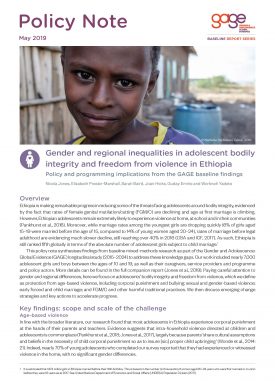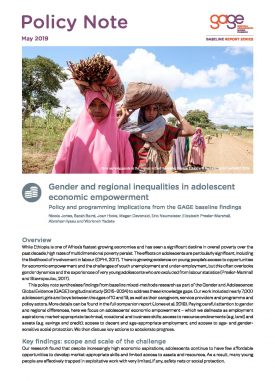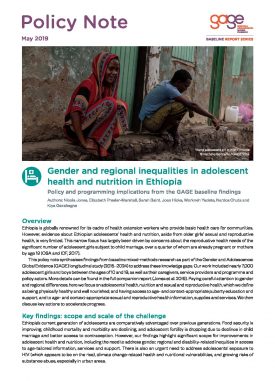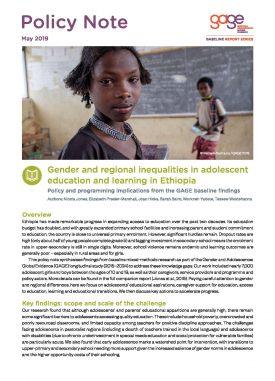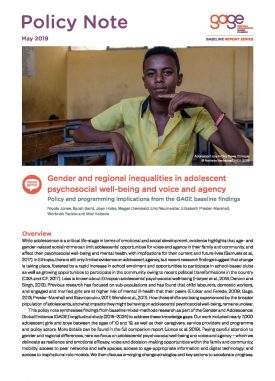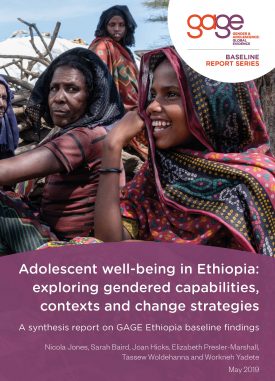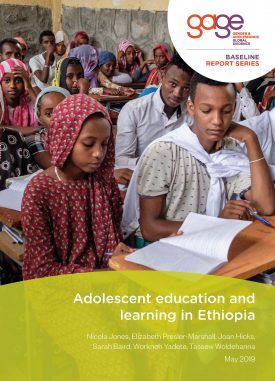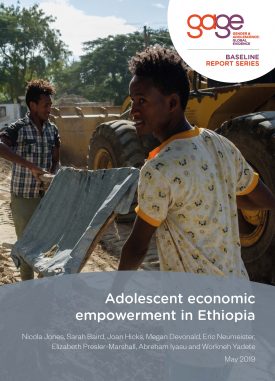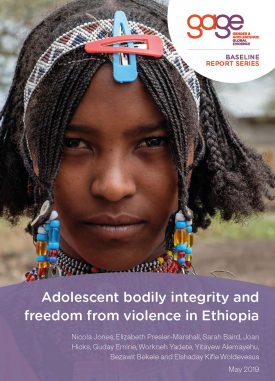The report on adolescent health, nutrition and SRH in Ethiopia is one of a series of short reports presenting findings from baseline mixed-methods research as part of the Gender and Adolescence: Global Evidence (GAGE) longitudinal study (2015–2024). In Ethiopia, our research sample involves a survey with more than 6,800 adolescent girls and boys from two cohorts aged 10–12 years (younger adolescents) and 15–17 years (older adolescents), and more in-depth qualitative research with 240 adolescents and their families. The baseline data was collected in selected sites in Afar, Amhara and Oromia regional states and Dire Dawa city administration during 2017 and 2018.
We focus on adolescents’ perceptions of their health, nutrition and SRH and experiences of accessing related services, paying particular attention to gender and regional differences, as well as differences between adolescents with disabilities and those without.
Key findings
- General health: While adolescents perceive their health to be good overall, poverty-related disease remains common and adolescents’ exposure to modern health risks such as substance abuse is increasing.
- Nutrition: The average adolescent in the GAGE sample lives in a moderately food-insecure household and is more likely to report poor diet quality than insufficient quantity.
- Puberty and menstruation: Young adolescents, especially those in rural areas, have limited access to timely information about puberty.
- Sexual and reproductive health: Adolescents’ access to and uptake of contraceptive information, supplies and services is highly variable.
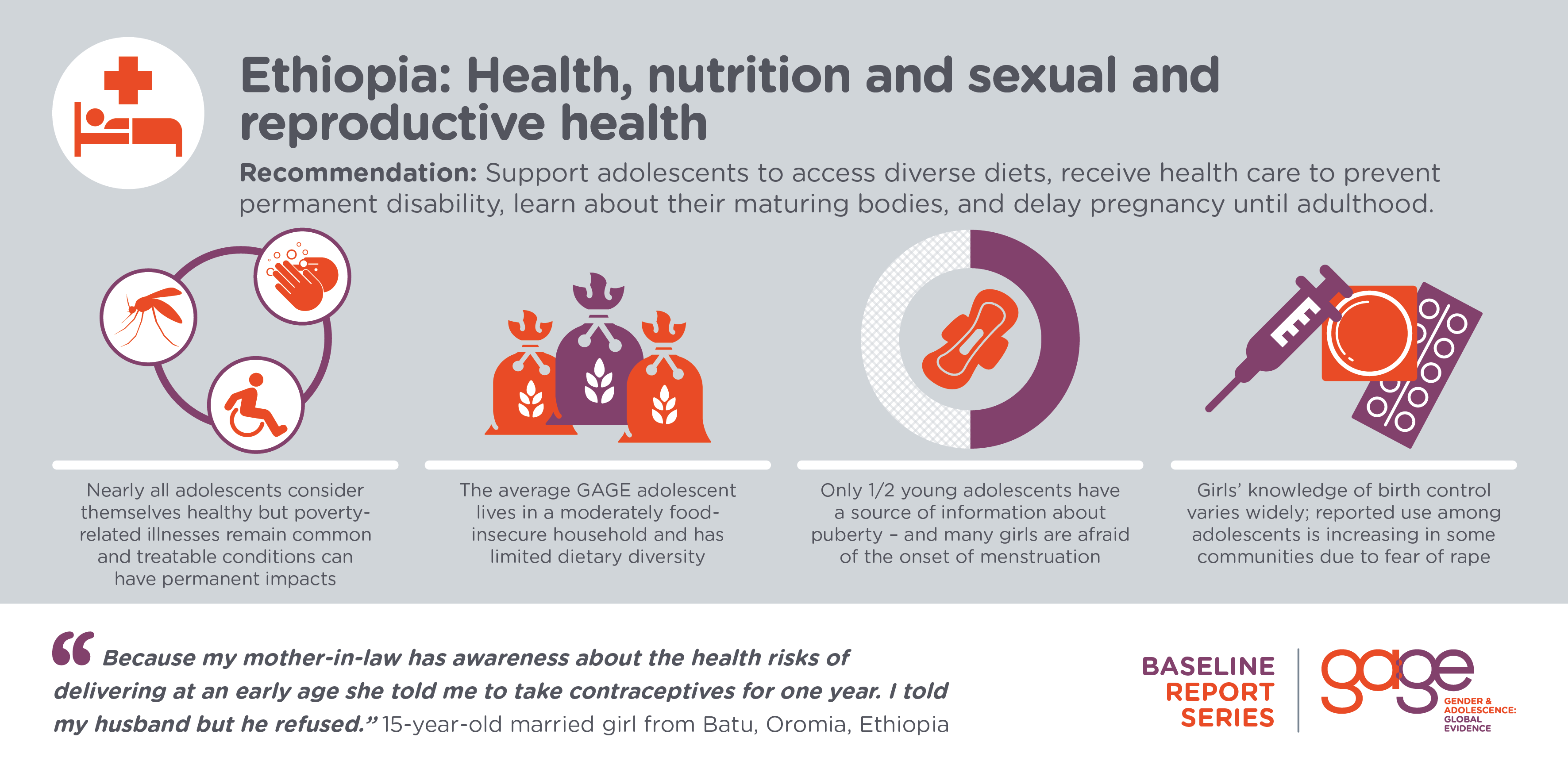
Suggested citation
Jones, N., Presler-Marshall, E., Baird, S., Hicks, J., Chuta, N. and Gezahegne, K. (2019) Adolescent health, nutrition, and sexual and reproductive health in Ethiopia. Report. London: Gender and Adolescence: Global Evidence. (https://www.gage.odi.org/publication/adolescent-health-nutrition-and-sexual-and-reproductive-health-in-ethiopia/)
